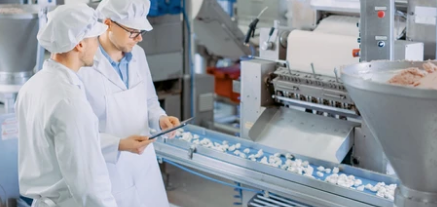Inside BENEO’s new pulse plant: pioneering sustainable protein from faba beans
The food processing industry is one of the linchpins of the global economy with value addition of $1.7 trillion
A report from KPMG says the Indian food processing market is expected to grow to $470 billion by 2025, from $263 billion in 2019-20. Implementing a collaborative approach is the key to drive growth in the industry, the report found.
The report recommended that in order to ensure a rapid scale up of quality infrastructure in accordance with industry requirements, the government-private partnerships must be considered through appropriate PPP models.
It said the government’s Production Linked Scheme is likely to motivate players and improve their processing capacities in order to meet the demand for rising challenges.
Per the report, there is a massive potential for complementary industries such as food processing equipment, ingredients, food packaging and food logistics. To meet hygiene standards and enhance competitiveness, the players, MSMEs in particular, will need high quality testing and certification infrastructure.
It has also been found that there’s a significant shift across the entire value chain for food processing, from non-sustainable food systems to environmentally sustainable food systems. There has also been a steady growth in the use of bio-ingredients and organic foods in the food supply chain.
The report pointed out that the Indian products are non-competitive in terms of quality and price in the export market, and that the government can support the exporters by lowering non-tariff barriers, negotiating free trade agreements, and working towards an immediate implementation of remission of taxes and duties on exported products.
The report also highlighted the direct need for increasing cold storage capacity. The absence of cold storage capacities greatly hinders the scalability of perishable products. Digitalised supply chain, logistics using 4.0 technologies, smart warehousing among others can help India reduce wastage during storage and transit.
Ashwin Bhadri, CEO of Equinox Labs, says, “Life after Covid-19 looks promising for India’s food processing industry, providing India with an opportunity to capitalise on increased possibilities.”
“Tier 2/3 cities and rural areas will continue to drive the demand for processed food. The Hotel/restaurant/cafe (HoReCa) segment will certainly play a crucial role as well in the aftermaths of Covid-19. What we need is a solid structure as the growth opportunities require us to re-calibrate our strategy so that we can gear up to capture new market trends”, Bhadri continues.

